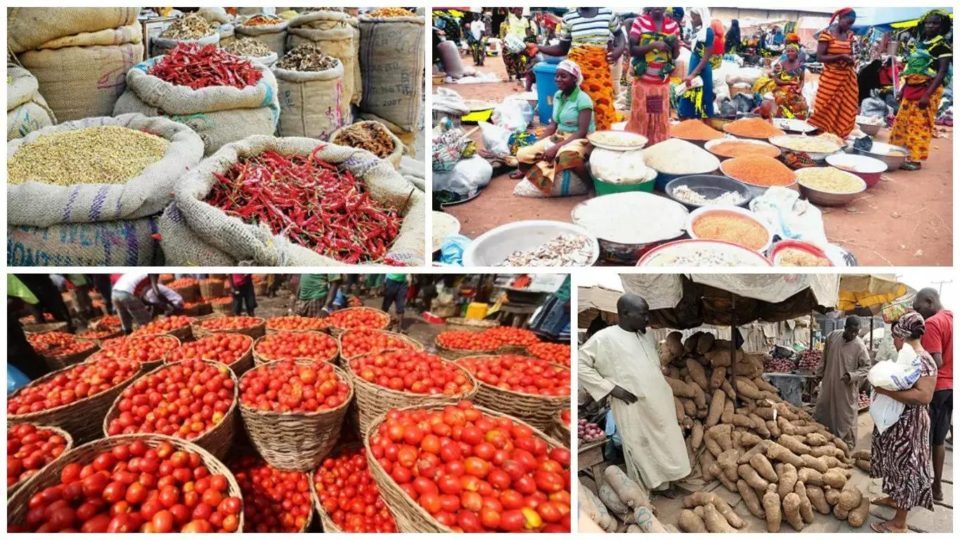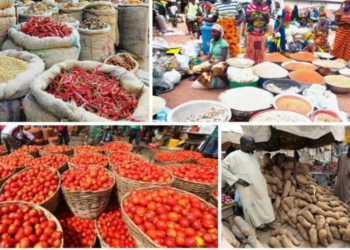The consumer price index, which measures inflation, rose to 11.37% in April 2019, according to the monthly inflation report released by the National Bureau of Statistics (NBS).
According to the NBS report, year-on-year, inflation increased by 0.12% points higher than the 11.25% rate recorded in March 2019.
Also, month-on-month, the headline index increased by 0.94 percent in April 2019, representing a 0.15 percent rate higher than the rate recorded in March 2019.
Food and other items index rose: The composite food index rose by 13.70 percent in April, compared to the 13.45 percent recorded in the previous month. The NBS stated that the rise in the food index was caused by increases in prices of Meat, Fish, Oils/fats, Bread/Cereals, Fish, Milk, Cheese, egg, Potatoes, yam, and other tubers, Fruits and vegetables.
Similarly, food sub-index increased by 1.14 percent for the month under review, up by 0.26 percent points from 0.88 percent recorded in March. On the other hand, core inflation (all item less farm produce) dropped to 9.3 percent, down by 0.2% when compared with 9.5 percent recorded in March.
The Bureau provided further insight into items that recorded the highest increase in inflation, specifically, some of the items include Medical services, Hospital services, Dental Services, Tobacco, Vehicle spare parts, Major household appliances, etc.
States Inflation rose up in the north: In the month of April, northern states recorded the highest inflation on all items. The top three states with the highest inflation rate include Kebbi, Bauchi, and Zanfara. On the other hand, Abia, Delta, and Cross River recorded the slowest inflation rise in headline year on year inflation.
Similarly, food inflation data shows that Kaduna, Kebbi, and Kwara States recorded the highest rise inflation on year on year basis, While Rivers, Bayelsa, and Kogi States all recorded the slowest rise inflation.
Urban Inflation spikes: In the month of April, urban inflation rate increased to 11.70 percent year on year basis from 11.54 percent recorded in March. On the other hand, rural inflation increased to 11.08 percent, up from 10.99 percent in March.
Month on month basis, the urban index also rose by 1 percent faster than rural inflation. Specifically, urban inflation up by 0.19 from 0.81 percent recorded in March, while on the other hand rural inflation index rose by 0.9, up from 0.3 percent recorded in the previous month.
Optics: The rise in April’s inflation rate represents the first time inflation increased in three months. Note that inflation has dropped for three consecutive months, from 11.37 percent in December, to 11.25 percent in March 2019. However, the new inflation is just the same rate recorded in December (11.37%)
As inflation inches up after dropping for three months, it implies all affected items captured by the Bureau witnessed a quick rise in terms of prices. It is important to note that food price spikes tend to be more temporal which is mostly triggered by shortages in supply, in relation to demand.
The rise in inflation rate is against analysts’ predictions that there will a drop in inflation in the month of April. For instance, FSDH Merchant Bank Limited earlier forecasted that inflation rate is expected to drop for the fourth consecutive month in April. Meanwhile, the rise in inflation rate is consistent with Nairametrics earlier report that business owners expect inflation maintain double digit in the next one year.
Upshots: As stated earlier, the spike in inflation rate for April 2019, for instance, means a quick rise in prices. The rise in food index was caused by increases in prices of Meat, Fish, Oils/fats, Bread and Cereals, Fish, Milk, Cheese an egg, Potatoes, yam, and other tubers, Fruits and vegetables.
Hence, the spike in inflation implies that businesses revenue may slightly deplete as the purchasing power of consumers drops, while this may also worsen export and growth for the period under review. Just as the International Monetary Fund (IMF) warned that Nigeria must keep inflation down to maximize full potential.
Controlling inflation is seen as a healthy stimulus for the economy as a whole, but it can also be quite challenging to keep in check. Spike in inflation for the month suggests that small businesses should remain mindful of its effects.
Although, large organizations are generally better-positioned to bear the brunt of inflation, as it can be offset by savings generated through economies of scale. However, small firms, often take a direct hit on margin. A slight increase could hurt capital expenditure, increase the cost of production for goods and turnover of the company.
Read the full Bureau’s report here: NBS April 2019 Inflation Report























